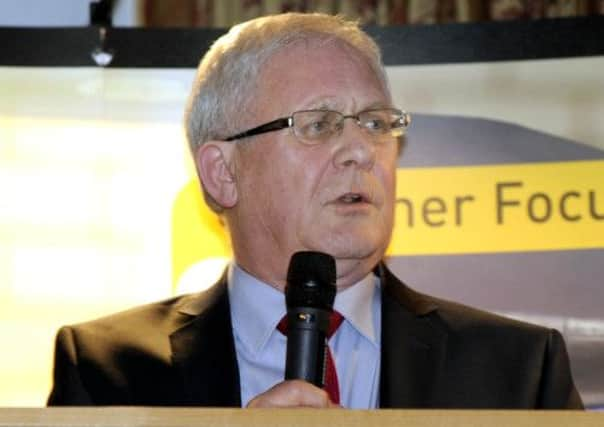Plug could be pulled on digital project disaster


A new report has revealed that South Yorkshire Digital Region, a flagship scheme which saw hundreds of miles of data cables laid beneath the streets of Sheffield, Rotherham, Doncaster and Barnsley to create “the best broadband network in Europe”, is likely to be “closed down” if Brussels does not agree to the project being dramatically scaled back.
The four South Yorkshire councils which own the “superfast” network in partnership with the Government are desperate to off-load the scheme on to the private sector after racking up millions of pounds in liabilities owing to their failure to attract any major customers to use the service since it launched in 2010.
Advertisement
Hide AdAdvertisement
Hide AdLast month it was announced that Bouygue Energy and Services (BYES) has been chosen as the preferred bidder to take over the running of the ailing project. If agreed, the deal would see the French firm take on all future liabilities, before assuming full ownership of the network in 2019.
But the new report by Doncaster Council’s finance officers reveals even that re-tendering process is expected to cost taxpayers a further £15m – with the bill to be shared between the four South Yorkshire authorities and the Treasury.
Doncaster, Barnsley and Rotherham will each have to pay out another £1.3m. Sheffield is liable for £2.6m, as it holds double the share-holding in the Digital Region project.
Only last year the four authorities were forced to shell out more than £30m between them to prevent the scheme collapsing under the weight of its catastrophic losses, while writing off a further £10m in loans.
Advertisement
Hide AdAdvertisement
Hide AdThe new report warns the latest bail-out is not even “the worst case scenario”, but has been arrived at “on the basis that all parties will be working hard to deliver the new contract within this sum”.
Last night, Mayor of Doncaster Peter Davies – who came to power after the Digital Region scheme was signed off – condemned the mismanagement of the project and the huge burden it has placed on his council at a time when services are being slashed across the board.
“It is a disaster for Doncaster and South Yorkshire,” he said. “It is a scheme which nobody in their right mind would have entered into. The council leaders involved thought they were businessmen, but the way the project has gone proves they wouldn’t know how to run a whelk stall.
“So far in Doncaster it is £10m down the pan, when we need every penny we can get. Since I was elected in 2009, the project has been like having a nail in your shoe. It is appalling, and I cannot understand why my predecessors entered into this idiotic arrangement.”
Advertisement
Hide AdAdvertisement
Hide AdIt took almost three years and £90m to build the fibre-optic network, which project managers said would give South Yorkshire the fastest broadband speeds in Europe.
As customers came on board, they claimed, the scheme would become cost-neutral. But following a raft of logistical problems, a high-profile row with BT over its rival Infinity service, and a near-total lack of marketing, hardly anyone has signed up to use the 25Mbs service.
The new report admits for the first time that project managers have seriously considered shutting down the network altogether, before deciding this would be even more expensive than giving it away to the private sector.
But even that decision could be taken out of their hands if the EU does not agree to the scheme being scaled back from its original purpose to offer superfast broadband to 97 per cent of homes and businesses in South Yorkshire.
Advertisement
Hide AdAdvertisement
Hide AdThe scheme’s spiralling losses meant work had to stop at 80 per cent of the region’s properties – thus excluding many of the far-flung rural areas it was designed to reach.
The EU, which provided a £25m grant towards the cost of installing the network, may now demand its money back.
If it does so, the deal with the French firm will fall through and the network is likely to close.
The council report states: “These risks need to be resolved before the contract can be signed with BYES. If the variation cannot be agreed, the contract is unlikely to be signed, and it is probable the network will be closed down.”
The report will be discussed by Doncaster Council’s cabinet later today, with Mr Davies commenting: “I am told paying this latest amount is the cheapest way out.”